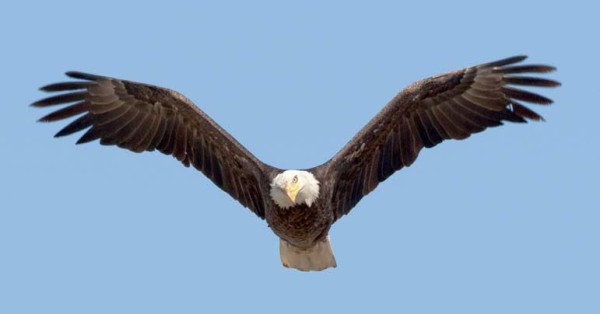
- Details
- By Native News Online Staff
ABERDEEN, S.D. — U.S. Attorney Ron Parsons announced yesterday David Alan Meyer, 58, was sentenced earlier this month by U.S. Magistrate Judge William D. Gerdes for killing six bald eagles on the Standing Rock Indian Reservation.
The sentence comes after Meyer, owner of Meyer Buffalo Ranch on the Standing Rock Sioux Indian Reservation, pled guilty on January 30 for his role in purchasing a restricted pesticide in March and April 2016 and then instructing his ranch workers to spread 39,000 pounds of Rozol prairie dog bait on more than 5,400 acres of his property.
Due to the large volume of poison needed to be distributed on the large ranch, the workers wanted to hurry the process and put down high concentrated amounts in a limited amount of holes. The sloppy work was not in accordance with application requirements of the Rozol label. As the result of the sloppy work by Meyer’s employees, six bald eagles died from the poison.
After an investigation by the Standing Rock Sioux Tribe Game and Fish Department, U.S. Fish and Wildlife Service and Environmental Protection Agency investigation Meyer was charged with the unlawful taking of bald eagles, unlawful taking of migratory birds, and unlawful use of restricted pesticide.
At his sentencing, Meyer was ordered to pay a total of $58,800 in restitution, $9,800 per eagle, a $50,000 fine, and a special assessment to the Federal Crime Victims Fund in the amount of $50.
Meyer could have received a one year in federal prison, a $100,000 fine, a one-year supervised release and $100 payment to the Federal Crime Victims Fund, and restitution.
"Today's sentencing is a testament to the commitment of federal, tribal and state law enforcement agencies to protect our nation's bald eagles," said Edward Grace, Assistant Director of the Office of Law Enforcement. "Illegal poisoning can have a significant impact on their populations. Working with our tribal, state and federal partners, the U.S. Fish and Wildlife Service is dedicated to protect our nation's fish and wildlife resources."
Assistant U.S. Attorney Meghan N. Dilges from the U.S. Attorney’s Office from the District of South Dakota prosecuted the case.
“The defendant put the health of workers and wildlife at risk by illegally obtaining and using a restricted-use pesticide,” said Acting Special Agent in Charge Lance Ehrig of the EPA’s Denver Area Office. “This case serves as a stark reminder that restricted use pesticides must be applied by certified personnel and as intended. Those who circumvent and ignore the laws that protect public health and wildlife will be held accountable by the EPA and our law enforcement partners.”
More Stories Like This
Native News Weekly (August 25, 2024): D.C. BriefsUS Presidents in Their Own Words Concerning American Indians
Wounded Knee Massacre Site Protection Bill Passes Congress
Two Murdered on Colville Indian Reservation
NDAA passes House; Lumbee Fairness Act Advances
Help us defend tribal sovereignty.
At Native News Online, our mission is rooted in telling the stories that strengthen sovereignty and uplift Indigenous voices — not just at year’s end, but every single day.
Because of your generosity last year, we were able to keep our reporters on the ground in tribal communities, at national gatherings and in the halls of Congress — covering the issues that matter most to Indian Country: sovereignty, culture, education, health and economic opportunity.
That support sustained us through a tough year in 2025. Now, as we look to the year ahead, we need your help right now to ensure warrior journalism remains strong — reporting that defends tribal sovereignty, amplifies Native truth, and holds power accountable.
 The stakes couldn't be higher. Your support keeps Native voices heard, Native stories told and Native sovereignty defended.
The stakes couldn't be higher. Your support keeps Native voices heard, Native stories told and Native sovereignty defended.
Stand with Warrior Journalism today.
Levi Rickert (Potawatomi), Editor & Publisher

